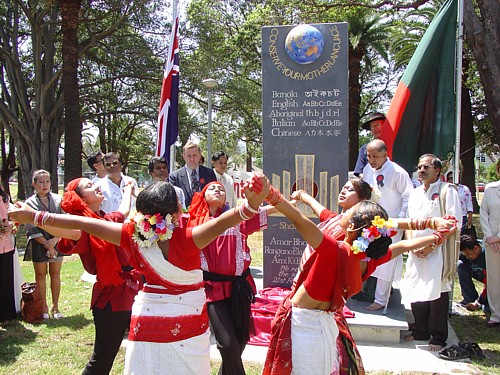|
Anglo-Quebecer
English-speaking Quebecers, also known as Anglo-Quebecers, English Quebecers, or Anglophone Quebecers (all alternately spelt Quebeckers; in French ''Anglo-Québécois'', ''Québécois Anglophone'') or simply Anglos in a Quebec context, are a linguistic minority in the francophone province of Quebec. According to the 2011 Canadian census, 599,225 people (around 7.7% of population) in Quebec declare English as a mother tongue. When asked, 834,950 people (about 10.7% of the population) reported using English the most at home. The origins of English-speaking Quebecers include immigration from both English-speaking and non English-speaking countries, migration from other Canadian provinces, and strong English language education programs in Quebecois schools. This makes estimating the population of those who identify as English-speaking Quebecers difficult. Population Statistics Canada uses census data to keep track of minority language communities in Canada. It has recorded ' ... [...More Info...] [...Related Items...] OR: [Wikipedia] [Google] [Baidu] |
Quebec
Quebec ( ; )According to the Canadian government, ''Québec'' (with the acute accent) is the official name in Canadian French and ''Quebec'' (without the accent) is the province's official name in Canadian English is one of the thirteen provinces and territories of Canada. It is the largest province by area and the second-largest by population. Much of the population lives in urban areas along the St. Lawrence River, between the most populous city, Montreal, and the provincial capital, Quebec City. Quebec is the home of the Québécois nation. Located in Central Canada, the province shares land borders with Ontario to the west, Newfoundland and Labrador to the northeast, New Brunswick to the southeast, and a coastal border with Nunavut; in the south it borders Maine, New Hampshire, Vermont, and New York in the United States. Between 1534 and 1763, Quebec was called ''Canada'' and was the most developed colony in New France. Following the Seven Years' War, Quebec b ... [...More Info...] [...Related Items...] OR: [Wikipedia] [Google] [Baidu] |
Languages Of Canada
A multitude of languages have always been spoken in Canada. Prior to Confederation, the territories that would become Canada were home to over 70 distinct languages across 12 or so language families. Today, a majority of those indigenous languages are still spoken; however, most are endangered and only about 0.6% of the Canadian population report an Indigenous language as their mother tongue. Since the establishment of the Canadian state, English and French have been the co-official languages and are, by far, the most spoken languages in the country today. According to the 2016 census, English and French are the mother tongues of 56.0% and 21.4% of Canadians respectively. In total, 86.2% of Canadians have a working knowledge of English, while 29.8% have a working knowledge of French. Under the ''Official Languages Act'' of 1969, both English and French have official status throughout Canada in respect of federal government services and most courts. All federal legislation is ena ... [...More Info...] [...Related Items...] OR: [Wikipedia] [Google] [Baidu] |
Mother Tongue
A first language, native tongue, native language, mother tongue or L1 is the first language or dialect that a person has been exposed to from birth or within the critical period. In some countries, the term ''native language'' or ''mother tongue'' refers to the language or dialect of one's ethnic group rather than one's first language. The first language of a child is part of that child's personal, social and cultural identity. Another impact of the first language is that it brings about the reflection and learning of successful social patterns of acting and speaking. Research suggests that while a non-native speaker may develop fluency in a targeted language after about two years of immersion, it can take between five and seven years for that child to be on the same working level as their native speaking counterparts. On 17 November 1999, UNESCO designated 21 February as International Mother Language Day. Definitions One of the more widely accepted definitions of native spe ... [...More Info...] [...Related Items...] OR: [Wikipedia] [Google] [Baidu] |
Greek Canadian
Greek Canadians ( el, Ελληνοκαναδοί) are Canadian citizens who have full or partial Greek heritage or people who emigrated from Greece and reside in Canada. According to the 2021 Census, there were 262,140 Canadians who claimed Greek ancestry. Demographics Provinces and territories with the highest population of Greek Canadians, according to 2016 Census: : Census Metropolitan Agglomerations (CMAs) with the highest population of Greek Canadians, according to 2016 Census: Cities with the highest population of Greek Canadians, according to 2016 Census: Ridings (Federal electoral districts) with the highest percentage of Greek Canadians, according to 2016 Census: List of notable Canadians of Greek ancestry Academics * Andreas Mandelis – expert on photonics, member of the Canadian Academy of Engineering; awarded the 2014 Killam Prize Authors *Pan Bouyoucas – finalist for the Governor General's Literary Award, 2001 *Tess Fragoulis – writer and educator * Tho ... [...More Info...] [...Related Items...] OR: [Wikipedia] [Google] [Baidu] |
Schwartz (Montreal) 2006-07-12
Schwartz may refer to: *Schwartz (surname), a surname (and list of people with the name) *Schwartz (brand), a spice brand *Schwartz's, a delicatessen in Montreal, Quebec, Canada *Schwartz Publishing, an Australian publishing house *"Danny Schwartz", a police detective in the film ''Heat'' portrayed by Jerry Trimble * C. F. Schwartz, Rev, an 18th-century missionary, member of the Church Mission Society, England, sent to India for missionary work *"The Schwartz", a parody of the Force from ''Star Wars'' in the 1987 comedy science-fiction film '' Spaceballs'' See also *Schwarz (other) Schwarz may refer to: * Schwarz, Germany, a municipality in Mecklenburg-Vorpommern, Germany * Schwarz (surname), a surname (and list of people with the surname) * Schwarz (musician), American DJ and producer * ''Schwarz'' (Böhse Onkelz album), ... * Swartz (other) * Schwarcz, a surname {{disambiguation ... [...More Info...] [...Related Items...] OR: [Wikipedia] [Google] [Baidu] |
Quebec Sovereignty Movement
The Quebec sovereignty movement (french: Mouvement souverainiste du Québec) is a political movement whose objective is to achieve the sovereignty of Quebec, a province of Canada since 1867, including in all matters related to any provision of Quebec's public order that is applicable on its territory. Sovereignists suggest that the people of Quebec make use of their right to self-determination – a principle that includes the possibility of choosing between integration with a third state, political association with another state or independence – so that Quebecois, collectively and by democratic means, give themselves a sovereign state with its own independent constitution. Quebec sovereigntists believe that such a sovereign state, the Quebec nation, will be better equipped to promote its own economic, social, ecological and cultural development. Quebec's sovereignist movement is based on Quebec nationalism. Overview Ultimately, the goal of Quebec's sovereignist movement ... [...More Info...] [...Related Items...] OR: [Wikipedia] [Google] [Baidu] |
Legal Dispute Over Quebec's Language Policy
The legal dispute over Quebec's language policy began soon after the enactment of Bill 101, establishing the Charter of the French Language, by the National Assembly of Quebec in 1977. The Charter, enacted under the Parti Québécois government of René Lévesque, expanded upon Quebec's previous language legislation, Bill 22, also known as the Official Language Act, enacted in 1974 under the Liberal Party of Quebec government of Robert Bourassa. Earlier language legislation in Quebec had included Bill 63 in 1969, and the La Vergne Law of 1910. Both statutes were drafted in an attempt to follow the recommendations of the Commission of Inquiry on the Situation of the French Language and Linguistic Rights in Quebec (the Gendron Commission). Unlike the (Quebec) Official Language Act of 1974 (not to be confused with the federal Official Languages Act), the Charter of the French Language was a legal framework defining the linguistic rights of Quebecers, and a language management poli ... [...More Info...] [...Related Items...] OR: [Wikipedia] [Google] [Baidu] |
Home Language
A first language, native tongue, native language, mother tongue or L1 is the first language or dialect that a person has been exposed to from birth or within the critical period. In some countries, the term ''native language'' or ''mother tongue'' refers to the language or dialect of one's ethnic group rather than one's first language. The first language of a child is part of that child's personal, social and cultural identity. Another impact of the first language is that it brings about the reflection and learning of successful social patterns of acting and speaking. Research suggests that while a non-native speaker may develop fluency in a targeted language after about two years of immersion, it can take between five and seven years for that child to be on the same working level as their native speaking counterparts. On 17 November 1999, UNESCO designated 21 February as International Mother Language Day. Definitions One of the more widely accepted definitions of native spe ... [...More Info...] [...Related Items...] OR: [Wikipedia] [Google] [Baidu] |
Statistics Canada
Statistics Canada (StatCan; french: Statistique Canada), formed in 1971, is the agency of the Government of Canada commissioned with producing statistics to help better understand Canada, its population, resources, economy, society, and culture. It is headquartered in Ottawa.Statistics Canada, 150 Tunney's Pasture Driveway Ottawa, Ontario K1A 0T6; Statistique Canada 150, promenade du pré Tunney Ottawa, Ontario K1A 0T6 The agency is led by the chief statistician of Canada, currently Anil Arora, who assumed the role on September 19, 2016. StatCan is responsible to Parliament through the Minister of Innovation, Science and Industry, currently François-Philippe Champagne. Statistics Canada acts as the national statistical agency for Canada, and Statistics Canada produces statistics for all the provinces as well as the federal government. In addition to conducting about 350 active surveys on virtually all aspects of Canadian life, the '' Statistics Act'' mandates that Statistic ... [...More Info...] [...Related Items...] OR: [Wikipedia] [Google] [Baidu] |
English Language
English is a West Germanic language of the Indo-European language family, with its earliest forms spoken by the inhabitants of early medieval England. It is named after the Angles, one of the ancient Germanic peoples that migrated to the island of Great Britain. Existing on a dialect continuum with Scots, and then closest related to the Low Saxon and Frisian languages, English is genealogically West Germanic. However, its vocabulary is also distinctively influenced by dialects of France (about 29% of Modern English words) and Latin (also about 29%), plus some grammar and a small amount of core vocabulary influenced by Old Norse (a North Germanic language). Speakers of English are called Anglophones. The earliest forms of English, collectively known as Old English, evolved from a group of West Germanic (Ingvaeonic) dialects brought to Great Britain by Anglo-Saxon settlers in the 5th century and further mutated by Norse-speaking Viking settlers starting in the 8th and 9th ... [...More Info...] [...Related Items...] OR: [Wikipedia] [Google] [Baidu] |
Interprovincial Migration In Canada
Interprovincial migration in Canada is the movement by people from one Canadian province or territory to another with the intention of settling, permanently or temporarily, in the new province or territory; it is more-or-less stable over time. In fiscal year 2019–20, 278,316 Canadians migrated province, representing 0.729% of the population.Statistics Canada, table 051-0012''Interprovincial migrants, by age group and sex, Canada, provinces and territories, annual''./ref> The Interprovincial migration levels of each province can be construed as a way to measure the success of these jurisdiction. The main measurement used is ''net interprovincial migration'', which is simply the difference between residents moving out of a province (out-migration) and the number of residents from other provinces moving into that province (in-migration). Since 1971, the provinces which received the most net cumulative interprovincial migrants (adjusted for population) were Alberta and British Colu ... [...More Info...] [...Related Items...] OR: [Wikipedia] [Google] [Baidu] |


.jpg)


